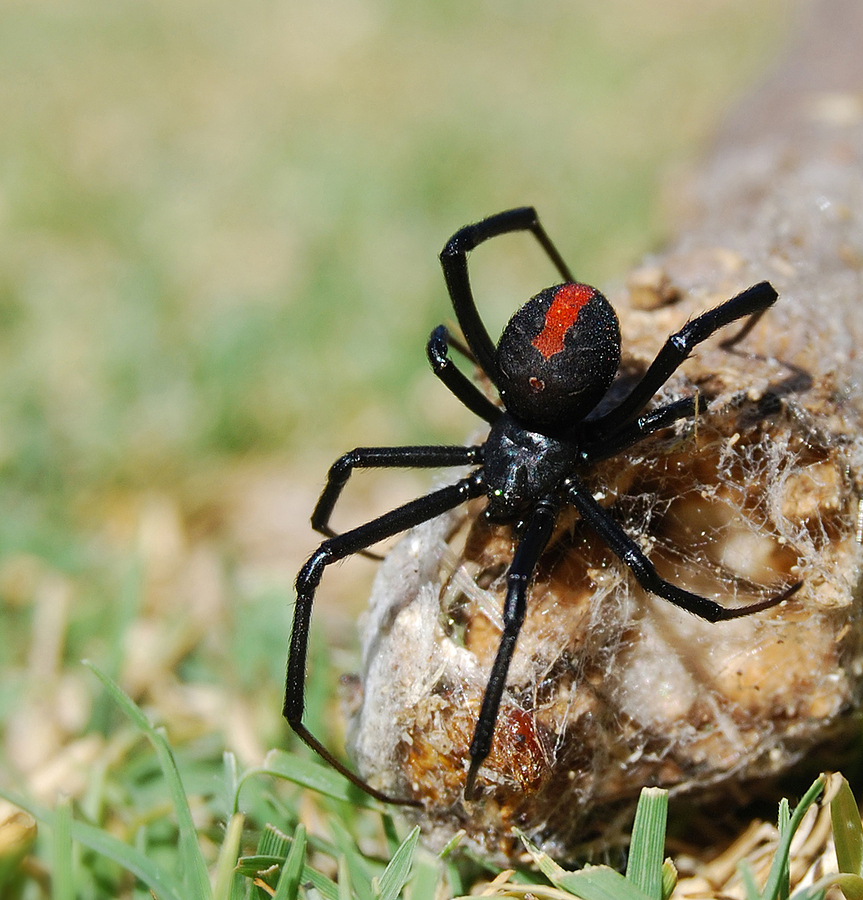Most Dangerous Spiders in VA to Watch Out For
- Details

Spiders are both feared and loved, considered friend and foe. On the one hand, they get rid of pesky bugs like mosquitos and flies, on the other hand, many are venomous. Some people have a fear of spiders for this reason - even though science says that only about one percent of spider species are actually dangerous to humans.
Seeing individual spiders and their nests of eggs can happen quite often. You should be able to identify common dangerous spiders that live in VA just in case.
Black Widows (Northern and Southern)
One of the most commonly known venomous spiders in the United States, black widows are between 1 and 1.5 inches long with a distinct red marking on the abdomen. In southern VA, you may encounter a black widow with a red hourglass shape on its bottom, but in the north, the spider abdomen is broken into two parts, which may look like bright red dots or dashes on its body.
Brown Recluse
This spider is not native to Virginia, with only a few yearly reported sightings. It is more common in the south of the state but can end up anywhere as these pests can come into the state through shipments and construction materials. It is tiny, about 0.5 inches, and brown, so it easily blends into its surroundings and goes unseen. A bite may come on suddenly, and be really painful. However, they are rarely fatal and can be treated with a trip to the ER.
What To Do When Bitten by a Venomous Spider in VA
For those of you with fears of spiders, you can rest easy. North America is home to thousands of species of spiders, and very few are dangerous to humans. The two mentioned above are the only ones you have to watch out for in your home and yard that may require medical attention. If you get bit by a black widow or brown recluse, seek medical attention, and bring the spider with you (if you can) sealed in a jar or other container. Most of the time, a bite from a black widow or brown recluse isn’t fatal, but has some uncomfortable symptoms. If you’re not sure what kind of spider bit you, but are experiencing severe pain, burning, swelling, or see fang marks, you should get to a doctor or ER.
Most Spiders in VA are Not Dangerous
Almost all spiders have some sort of venom, however, it rarely affects humans in a serious way. A spider bite from one of Virginia’s many native species may swell and itch, resembling a mosquito bite that takes a few days to go away. Unless you’re experiencing serious symptoms, you don’t have to worry about most spider bites - they will go away on their own! You can speed up recovery by cleaning the area with alcohol.
Although these bites aren’t serious, the non-dangerous spiders can still become a nuisance, especially if they set up a nest on your property. Some other common species of spiders in VA are:
- Common House Spider - Small and brown, they live in elevated areas and set up their webs to trap their prey. In nature, they live on trees, but find their way into homes occasionally in the cold seasons.
- Orb Weaver Spider - These small spiders are orange and black, and are about an inch in length. They’re also known as garden spiders and weave large, shiny webs in bushes and shrubs.
- Wolf Spider - One of VA’s most common eight-legged friends, the wolf spider is about an inch and a half in length and gray in color. They patrol gardens and lawns at night, hunting down other pesky bugs. They’re harmless, but may be scary to encounter as they sometimes hide in basements and garages. The females carry their babies on their backs until they’re ready to leave the nest, which can cause panic. The best thing to do is to leave them alone when you spot them.
What to Do If You Have a Spider Infestation
If you’ve spotted one or more spiders, venomous or not, in or around your home, you may want to consider professional pest control from Eagle Pest Services. We know how to find and identify these pests, and remove them from your home so you don’t have to worry about your children and pets being bitten. Call us at 1-(866) 281-1822 or contact us online to schedule an inspection today.





